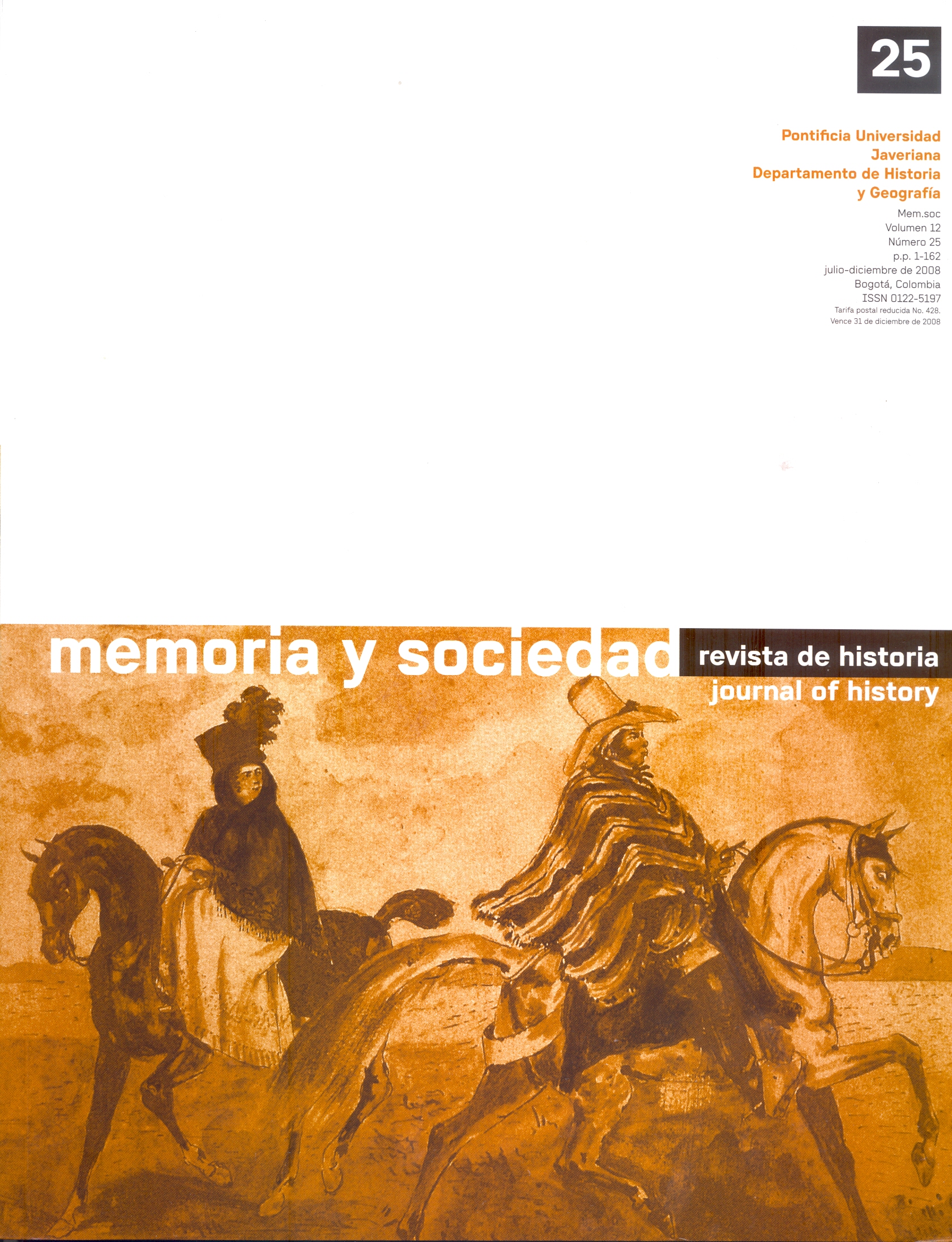Abstract
The article herein shows some conceptual features of Miguel Antonio Caro’s intellectual project and its intrinsic strengths. Furthermore, it details the type of politicization which Caro imposed on some of the work of his contemporaries politicization which, in turn, was later imposed on him-self by contemporary historiography. More to the point, I evidence how Caro, when asserting that a particular text by Jorge Isaacs (The native tribes of the Magdalena basin) was scientific, immediately proceeded to politicize Isaac’s work, among other things, because he (Caro) did not have the relevant arguments needed to confront Isaacs’ text in its own terms and framework. Thus, in order to dismiss Isaacs’ objections raised against the government of Nuñez, Caro places the aforementioned work by the author of María, among the texts that threatened social order by presenting it as part and parcel of positivism, empiricism, liberalism, and all other intellectual efforts based on a damaging sensualism.The journal Memoria y Sociedad is registered under a Creative Commons Attribution 4.0 International Public License. Thus, this work may be reproduced, distributed, and publicly shared in digital format, as long as the names of the authors and Pontificia Universidad Javeriana are acknowledged. Others are allowed to quote, adapt, transform, auto-archive, republish, and create based on this material, for any purpose (even commercial ones), provided the authorship is duly acknowledged, a link to the original work is provided, and it is specified if changes have been made. Pontificia Universidad Javeriana does not hold the rights of published works and the authors are solely responsible for the contents of their works; they keep the moral, intellectual, privacy, and publicity rights.
Approving the intervention of the work (review, copy-editing, translation, layout) and the following outreach, are granted through an use license and not through an assignment of rights. This means the journal and Pontificia Universidad Javeriana cannot be held responsible for any ethical malpractice by the authors. As a consequence of the protection granted by the use license, the journal is not required to publish recantations or modify information already published, unless the errata stems from the editorial management process. Publishing contents in this journal does not generate royalties for contributors.

